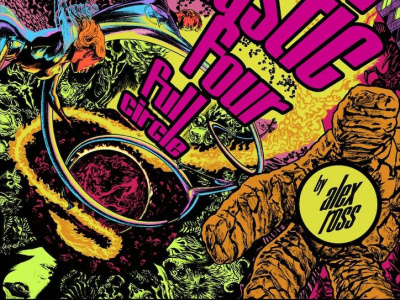In a statement released Friday, March 2nd, Marvel President Bill Jemas has reinforced Marvel's decision not to over-print its periodical comics. Calling the past policy of 10-20% overprints, 'a desperate, shortsighted effort to squeeze every last dollar out of every last book,' Jemas listed numerous reasons why that policy was a failure, including the costs of printing, selling excess merchandise, storage, and destruction. Instead, he reinforced Marvel's new policy, which has largely been disclosed in the past. This new policy involves overprints only to cover damages, a more aggressive trade paperback program to collect material popular enough to warrant it, combining price and format in ways that give Marvel's periodicals a better value proposition, and putting the stories from sold-out periodicals on Marvel's website.
While Marvel's decision not to overprint has previously raised considerable ire among some retailers (on the Delphi comic retailer forum, for example), we actually believe that it makes sense if coupled with a much more aggressive trade paperback program, as promised. A back issue market where there's more demand than supply is a welcome rarity in today's periodical comics business; while we don't want to see a return to the bad old days of excessive speculation on comics, a little heat is not a bad thing. And having some unfilled demand from comic shop customers can give the trade collections better sales out of the gate than they would otherwise get.
The comics industry is undergoing major changes (see 'Top Comics Below 100,000'), and the periodical vs. trade paperback/ collectible vs. 'always in stock' dialectic is a major part of that change. Marvel epitomizes the publishers that are primarily reliant on periodical sales; the company's experiments in attempting to revive their periodical sales -- no overprints and the Ultimate line, most notably -- may mark the best chance to revive the fortunes of this format that once comprised all of comic publishing.
Here's the full text of Jemas' statement:
'Contrary to popular belief, gross over-printing is not a time-honored comic industry tradition. In fact, Marvel's policy of overprinting/re-printing 10-20% of our line was implemented during the company's bankruptcy in a desperate, shortsighted effort to squeeze every last dollar out of every last book. The policy never worked. It was never penny-wise; it was always pound-foolish.
- Marvel added 15% to our annual manufacturing costs and passed those costs along to consumers as price increases. Consumers, of course, bought fewer books.
- Every year Marvel spent several hundred thousand dollars to re-solicit those books to stores, again passing along the costs and suffering long-term volume decreases.
- Most of those re-solicited sales were at deep discounts, which punished any retailer who had been optimistic enough to make an aggressive initial order at full price.
- Then, Marvel would pay thousands of dollars to store the unsellable books.
- We would pay thousands more to destroy the unsellable books.
- In addition, some books always found their way into the black markets, further hurting Marvel, Diamond, and our legitimate customers.
- Finally, over-prints and reprints flat out gutted the long-term value of any book that could have become collectible.
Right now, Marvel makes enough extra copies to cover normal damages and mis-shipments. Beyond that, we do not overprint and do not reprint. I genuinely regret the inconveniences that this new policy has caused to comic-store owners. And frankly, Marvel misses the short-term revenue every bit as much as you do. But I do believe that Marvel is acting in all of our best long-term interests. All the money we stopped wasting has been put to good use. Marvel has:
- Held the price of our mainline monthly books to $2.25, while our distinguished competition increased theirs to $2.50.
- Priced Ultimate Spider-Man and Ultimate X-Men at $2.25 while producing those books in a prestige format that normally commands $2.99.
- Built an inventory of trade paperbacks to keep more books in constant supply.
- Promoted new readership by posting sold-out books on Marvel.com.
- Upgraded the writing, art and editorial standards of every book in the line
This is the new Marvel. We can't be all things to all men, but we can make the best books in the business and sell them at the best price.
Sincerely,
Bill Jemas







